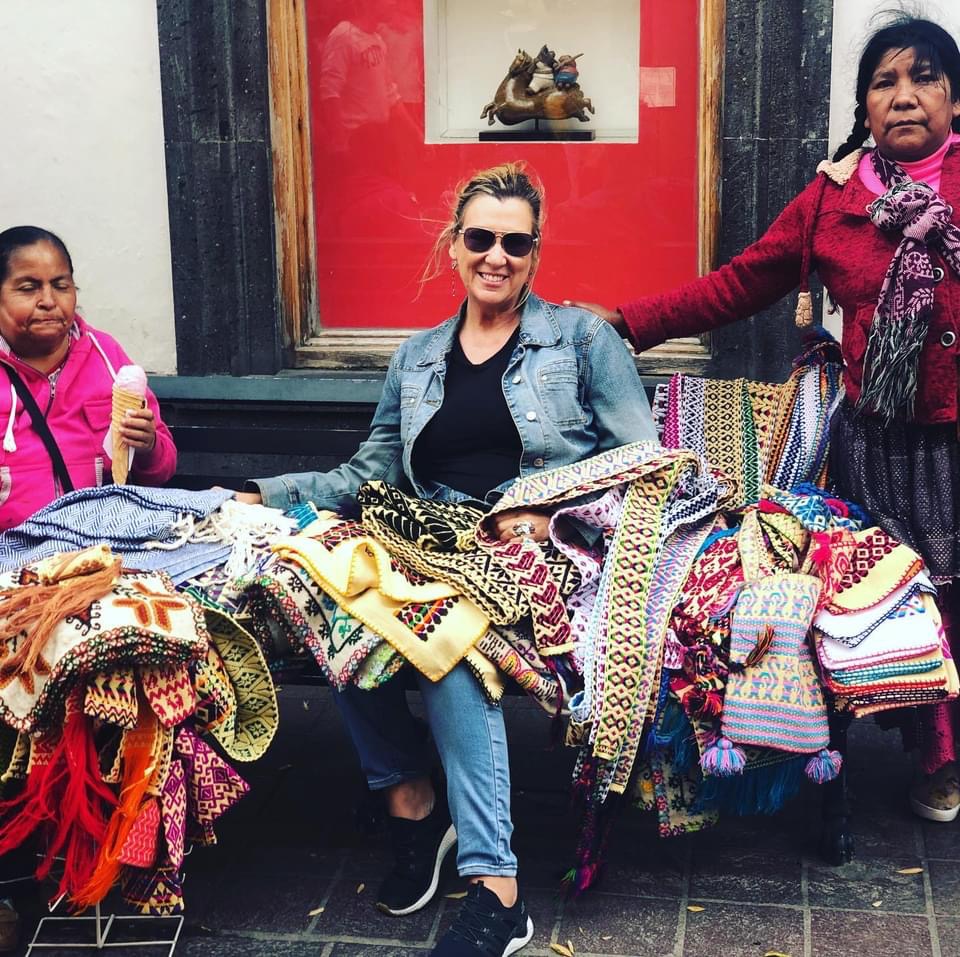Dianna Williams-Hefley grew up with one foot on each side of the border. She spent her early years living in the United States, but due to job opportunities for her parents who were teachers, her family moved to Guadalajara, Mexico. That’s where she went to high school.
Williams-Hefley recalls being mesmorized by the art culture she experienced while living in Mexico. Enchanted by the vibrant colors of folk art and the traditional methods used in each handcrafted piece, Williams-Hefley’s appreciation for Mexican artisan work stayed with her even after returning to the U.S.
“I was always trying to figure out someway to get back to Mexico,” Williams-Hefley said. “I loved and had such an appreciation for handmade art.”
This appreciation inspired the El Pasoan in 1993 to open The Desert Gypsy, a now online shop that sells handcrafted art imported from the country.
Business was going well until the COVID-19 pandemic hit in 2020, making international travel complicated amid public health concerns.
“Thank goodness I traveled in January and February last year a lot,” Williams-Hefley said. “I bought enough jewelry for the year, went back to the states, got everything shipped and then boom COVID started.”
Williams-Hefley typically travels to her second home in Guadalajara multiple times a year to shop for art, textiles, pottery and clothing from Mexican artisans in villages around Jalisco. She said she was fortunate to have purchased large amounts of merchandise before March 2020, which was what kept her business afloat in the months that followed.
However, as her stock began to decrease she faced with the decision to either travel back to Mexico in November in order to stay in business, or let go of her shop.
“I think during the pandemic we sometimes take more calculated risks,” said Williams-Hefley, who at 60 years-old falls into a high-risk category for COVID-19. “I just felt it was more important for me to come down here (Mexico), see the artisans, keep my foot in the door with them and let them know I’m still going to be around.”
She said she followed all health safety regulations while traveling, including wearing double masks and quarantining for at least 14 days in her home near Guadalajara. As she travels through the city seeking out the artists and their crafts, the open space of outdoor shopping allows her to social distance while interacting with vendors.
“It’s not been fun,” Williams-Hefley said in a call from Guadalajara. “In Mexico it’s all kisses and hugs and that doesn’t happen anymore. We don’t have much spirit in us.”
Aside from the loss of spirit, business just isn’t the same for Williams-Hefley. With COVID-19 spread throughout Mexico, she said her regular artisans are no longer in business or are unable to travel to the city.
“It really affected the people in Mexico and especially the people of few means like the artists and artisans,” Williams-Hefley said. “They’re producing without selling. There seems to be a lot of merchandise just waiting to be bought.”
According to Jalisco’s government website, Tonala, Jalisco and other towns have offered 1,500 and 1,000 pesos respectively (U.S. $63 and $42) to artisans who have lost employment and business.
“Four thousand indigenous artisans received support of fifteen hundred pesos affected in their economic activity and because it is a priority attention group,” the website reported.
The Jalisco website also states the government is working to help families of artisans affected by COVID-19, through its Plan for Economic Reactivation. The plan includes a section called Reactiva Artesanal, with a 15 million pesos budget that has supported 178 artisans as of today.
Reinicia Artesanas y Artesanos, is another part of the government’s plan, which has a budget of 10 million pesos. As of November the initiative had registered 500 Wixárika artisans from the north.
In Guadalajra, Williams-Hefley is trying to buy as much merchandise as possible to help keep alive her business and that of many artisans.
“So much is lost when the artisans can’t sell,” Williams-Hefely said. “The most significant loss is the family’s generational knowledge may be lost if the artisans have to go elsewhere to find work. The kids who work in the “talleres” are no longer absorbing the family culture of making art.”


